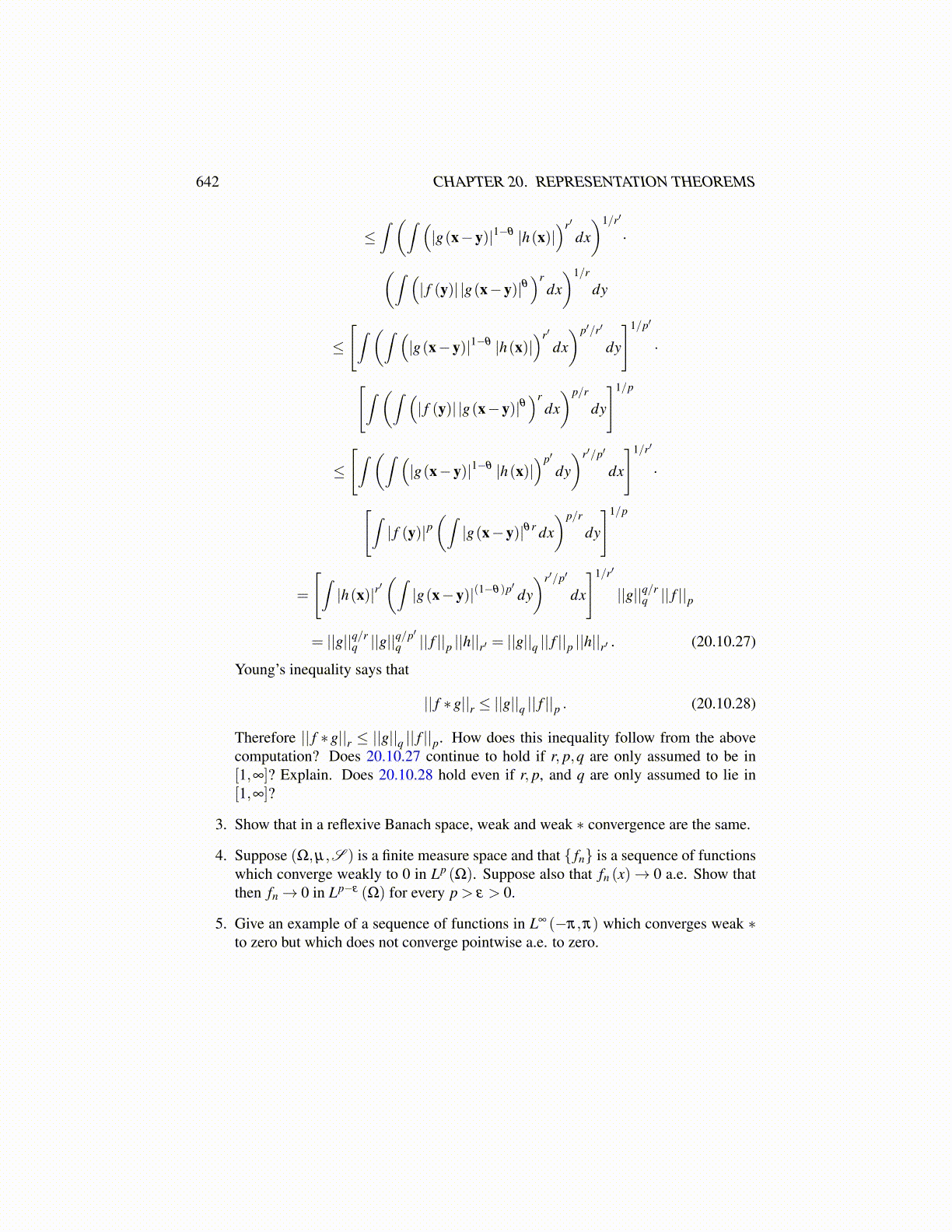
642 CHAPTER 20. REPRESENTATION THEOREMS
≤∫ (∫ (
|g(x−y)|1−θ |h(x)|)r′
dx)1/r′
·
(∫ (| f (y)| |g(x−y)|θ
)rdx)1/r
dy
≤
[∫ (∫ (|g(x−y)|1−θ |h(x)|
)r′
dx)p′/r′
dy
]1/p′
·
[∫ (∫ (| f (y)| |g(x−y)|θ
)rdx)p/r
dy
]1/p
≤
[∫ (∫ (|g(x−y)|1−θ |h(x)|
)p′
dy)r′/p′
dx
]1/r′
·
[∫| f (y)|p
(∫|g(x−y)|θr dx
)p/r
dy
]1/p
=
[∫|h(x)|r
′(∫|g(x−y)|(1−θ)p′ dy
)r′/p′
dx
]1/r′
||g||q/rq || f ||p
= ||g||q/rq ||g||
q/p′q || f ||p ||h||r′ = ||g||q || f ||p ||h||r′ . (20.10.27)
Young’s inequality says that
|| f ∗g||r ≤ ||g||q || f ||p . (20.10.28)
Therefore || f ∗g||r ≤ ||g||q || f ||p. How does this inequality follow from the abovecomputation? Does 20.10.27 continue to hold if r, p,q are only assumed to be in[1,∞]? Explain. Does 20.10.28 hold even if r, p, and q are only assumed to lie in[1,∞]?
3. Show that in a reflexive Banach space, weak and weak ∗ convergence are the same.
4. Suppose (Ω,µ,S ) is a finite measure space and that { fn} is a sequence of functionswhich converge weakly to 0 in Lp (Ω). Suppose also that fn (x)→ 0 a.e. Show thatthen fn→ 0 in Lp−ε (Ω) for every p > ε > 0.
5. Give an example of a sequence of functions in L∞ (−π,π) which converges weak ∗to zero but which does not converge pointwise a.e. to zero.